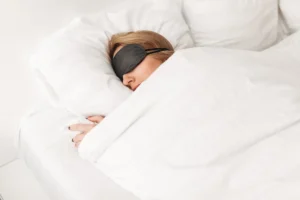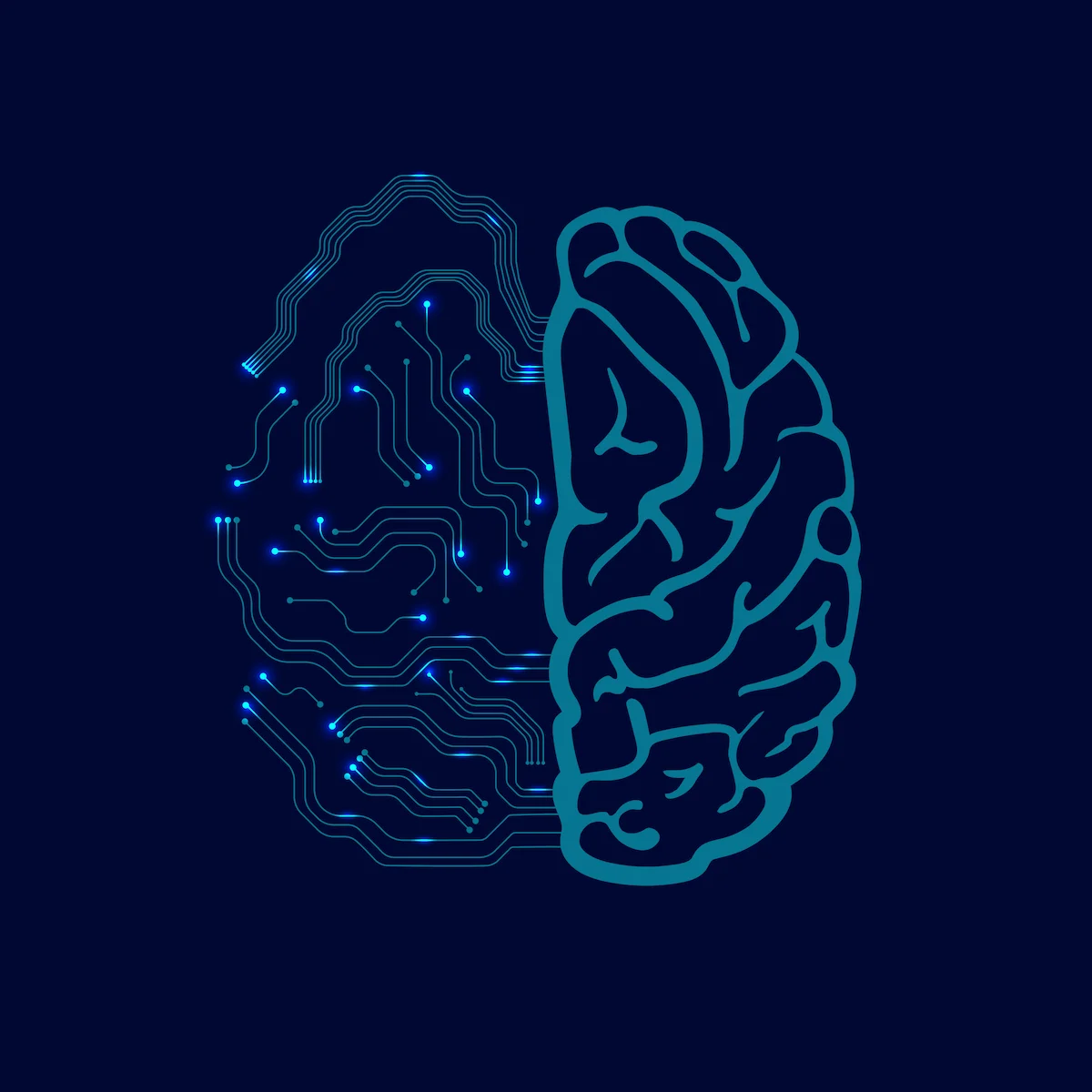Discover how sleep quality directly influences attention and cognitive vigilance through analysis of its causes, consequences, and strategies to improve attentional performance from neuropsychology.
Sleep is a fundamental pillar of mental and cognitive health. Among the functions most affected by sleep quality, attention is one of the most vulnerable. In the context of neuropsychology and neurorehabilitation, understanding the link between sleep and attention is essential to propose effective intervention strategies. This article explores the mechanisms involved, the clinical consequences of poor rest, and concrete solutions to restore cognitive vigilance.
Why sleep is essential for attention
Neurological mechanisms involved
The sleep is not a simple pause, but an active process structured in successive cycles. These cycles regulate vigilance and cognitive processing functions:
- The deep sleep phase promotes synaptic consolidation, essential for maintaining sustained attention.
- The REM (paradoxical) sleep contributes to emotional regulation and the integration of complex learning, which reinforces selective attention and cognitive flexibility.
- La activation of the glymphatic system during sleep allows better clearance of metabolic waste, facilitating mental clarity upon waking.
Disruptions of these processes have a direct impact on cognitive functionality, especially on the ability to concentrate and manage distractions, which directly affects performance in daily activities and people’s quality of life.
Studies on sleep deprivation and attention
Numerous studies show that even a moderate restriction of sleep (less than 6 hours per night) causes:
- A significant drop in performance on tasks that require sustained attention.
- A increase in reaction time and in response variability.
- A reduction in activity in the dorsolateral prefrontal cortex, involved in directed attention and executive control.
Impact on different types of attention
Sleep influences various forms of attention:
- Sustained attention: very sensitive to lack of sleep, it decreases after the first night of restriction.
- Selective attention: sleep-deprived individuals have more difficulty inhibiting irrelevant stimuli.
- Divided attention: especially affected in multitasking situations, which increases the risk of errors.
Clinical consequences of poor sleep on attention
Cognitive disorders
Poor sleep causes attentional disorders noticeable in daily life: frequent forgetfulness, distraction, cognitive fatigue.
In patients with neurological conditions, these effects worsen. For example:
- Sleep apnea: causes frequent micro-awakenings and episodes of nocturnal hypoxia, which reduce attention capacity upon waking.
- Chronic insomnia: impairs vigilance and causes fluctuations in attention, harming learning.
- Mood disorders (depression, anxiety): often associated with fragmented sleep, they exacerbate cognitive difficulties.
Patient groups at risk
Certain clinical profiles are more vulnerable to attention difficulties related to sleep:
- Children and adolescents: sleep disturbances can be frequent in this population, affecting the development of attention and inhibitory control.
- Older adults: the amount and quality of deep sleep in older adults is often reduced with age, causing vigilance and attention in general to be affected.
- Neurological and neuropsychiatric patients (ADHD, Alzheimer’s, traumatic brain injury): these patients often have comorbidity with sleep disorders, which worsens attentional difficulties.
Interventions to improve attention through sleep
Sleep hygiene education
Promoting good sleep hygiene is an essential step to reduce sleep disturbances. It includes:
- Maintain regular sleep schedules.
- Avoid screens with blue light at least one hour before going to bed.
- Create an environment conducive to rest (dark, quiet room with a cool temperature).
- Reduce consumption of stimulants (caffeine, alcohol, nicotine), at least 6 hours before bedtime.
- Do not take naps longer than 30 minutes.
Improving sleep habits may be sufficient to enhance attentional functioning in daily life, especially in younger patients.
Cognitive-behavioral therapies for insomnia (CBT-I)
CBT-I has demonstrated its effectiveness in the medium and long term for treating insomnia. They include:
- Cognitive restructuring of dysfunctional beliefs about sleep.
- Time-in-bed restriction.
- Stimulus control to associate bed with sleep.
In patients with attention difficulties, restoring sleep through CBT-I often improves cognitive performance.
Specific cognitive training
Digital tools like NeuronUP allow designing personalized trainings focused on attentional components:
- Activities for sustained attention: maintaining prolonged vigilance without disengaging.
- Activities for selective attention: identifying specific elements among distracting stimuli.
- Activities for alternating attention: shifting our focus from one task or internal rule to another smoothly.
These exercises can be even more effective if combined with interventions to improve sleep, promoting the connection of attentional networks and cognitive performance.
Integrating the sleep dimension into neuropsychological assessment
Importance of joint assessment
In clinical practice, it is essential to consider sleep quality and quantity when assessing cognitive functions, especially attention. Attentional difficulties detected in a test may be the consequence of an undiagnosed sleep disorder.
Recommended assessment tools
There are several tests that allow the evaluation of sleep disorders and disturbances. It is recommended to include them within cognitive assessments to rule them out or confirm them.
Some of these tools are:
- Pittsburgh Sleep Quality Index (PSQI): assesses sleep quality over the past month.
- Epworth Sleepiness Scale: measures the tendency to fall asleep in various situations.
- Actigraphy or polysomnography: useful for objective assessment in complex cases.
Including these tools helps contextualize cognitive results and better guide intervention.

Subscribe
to our
Newsletter
Conclusion
Sleep quality directly influences attentional performance. In patients with cognitive impairments, including sleep in assessment and rehabilitation allows optimizing outcomes. A better understanding of the sleep-attention link paves the way for more effective strategies, in which tools like NeuronUP play a key role in the specific stimulation of attentional functions, in synergy with interventions on lifestyle habits.
Bibliography
- Durmer, J. S., & Dinges, D. F. (2005). Neurocognitive consequences of sleep deprivation. Seminars in Neurology, 25(1), 117–129. https://doi.org/10.1055/s-2005-867080
- Killgore, W. D. S. (2010). Effects of sleep deprivation on cognition. Progress in Brain Research, 185, 105–129. https://doi.org/10.1016/B978-0-444-53702-7.00007-5
- Lim, J., & Dinges, D. F. (2010). A meta-analysis of the impact of short-term sleep deprivation on cognitive variables. Psychological Bulletin, 136(3), 375–389. https://doi.org/10.1037/a0018883
- Owens, J. A., & Weiss, M. (2017). Insomnia in children and adolescents. Child and Adolescent Psychiatric Clinics of North America, 26(4), 563–580. https://doi.org/10.1016/j.chc.2017.05.001
- Walker, M. P. (2009). The role of sleep in cognition and emotion. Annals of the New York Academy of Sciences, 1156, 168–197. https://doi.org/10.1111/j.1749-6632.2009.04416.x
Sleep and attention: what you need to know
1. How can you tell if a patient’s attention problems are related to poor sleep?
It is advisable to assess sleep quality at the first consultation, especially if the patient presents attentional fluctuations. Tools like the PSQI or the Epworth Sleepiness Scale can detect a sleep debt that could explain a deficit in sustained attention.
2. Which types of sleep disorders most affect attention?
Disorders that fragment sleep, such as obstructive sleep apnea, nocturnal awakenings, or chronic insomnia, are the most harmful to selective attention and vigilance. They reduce deep sleep and REM phases, which are essential for cognitive processing.
3. What is the difference between a primary attention disorder and one caused by sleep?
A primary attentional disorder (such as ADHD) is persistent and does not depend on sleep. In contrast, a secondary alteration of attention due to poor rest is characterized by cognitive fatigue, variable performance during the day, and improvement after restorative sleep.
4. Can attention be improved without medication by acting only on sleep?
Yes. Improving sleep —through sleep hygiene or CBT-I— can significantly increase attentional performance, especially sustained attention and prolonged concentration.
5. How to integrate attentional training into a sleep-centered protocol?
The best strategy is to combine cognitive rehabilitation with sleep interventions. For example, using digital activities directed at attention with NeuronUP, together with sleep education and implementation of strategies, enhances results and favors consolidation of cognitive gains.
If you liked this article about the impact of sleep on attention: understanding and improving cognitive vigilance, you will likely be interested in these NeuronUP articles:
“This article has been translated. Link to the original article in Spanish:”
El impacto del sueño en la atención: comprender y mejorar la vigilancia cognitiva







 The cognitive profile in dyslexia: keys to identification and intervention from neuropsychology
The cognitive profile in dyslexia: keys to identification and intervention from neuropsychology
Leave a Reply